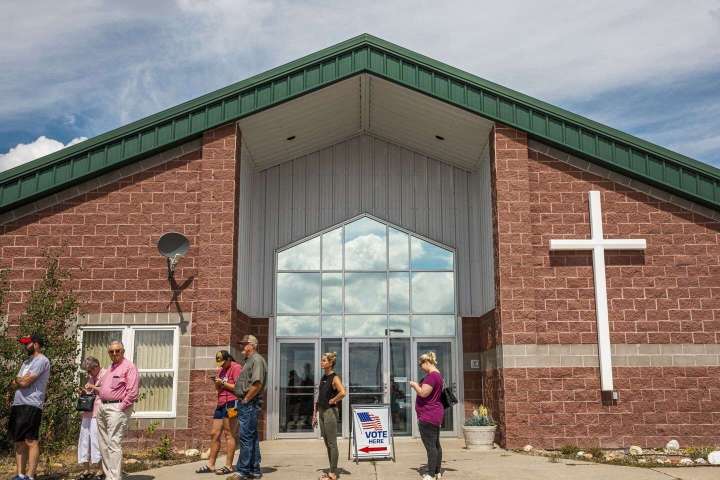I grew up attending a small country church where, every Sunday morning, the 75 or so regular attendees heard Bible-based sermons with a heavy emphasis on the danger of veering from the straight and narrow and landing in eternal damnation in a fiery hell. It was fun.
For most Christians, God’s hand on America is a comfort, not a weapon

But in the wake of Roe v. Wade and other perceived attacks on that Old-Time Religion by an increasingly liberal world, Christianity had by the 1980s become politically weaponized, with “Christian soldiers” mostly aligning with the GOP. That war rages today.
Looking back, politicizing conservative Christianity was a mistake, even if well-intentioned. It’s natural for Christianity to exist in a state of tension within an inclusive democracy. Consider Jesus’ Great Commission to “go and make disciples of all nations,” which includes, of course, this nation. By scripture, Christians are not encouraged to just live and let live. But our Constitution says otherwise.
Walking that tightrope is a challenge. For instance, Christians often struggle with how much to be involved with, or live apart from, the world. As parents, do you run for school board or try in other ways to influence the public school system? Or do you retreat within your walls and home-school your children? Either choice is ripe for criticism. But at the end of the day, the Christian belief that this short life is a mere prelude to the eternal one makes spending so much effort on influencing our temporal governments seem odd.
What will not change is the sincere belief held by millions of Christians (and others) that the United States has a special spiritual purpose. Such a purpose as carried out by Black churches and ministers during the civil rights era of the 1950s and ’60s is regarded as crucial to the movement’s success. But when defined today as “Christian nationalism,” church involvement in political affairs is said to be dangerous. For many White Republicans, who are typically identified as the movement’s drivers, the recent focus on Christian nationalism is the latest way to call their very existence a threat, close on the heels of accusations of racism, fascism and being “MAGA Republicans,” defined in changing ways but always negatively, by President Biden.
Gathering no moss, Rolling Stone followed up last week with video that showed the Pennsylvania GOP’s candidate for governor, Doug Mastriano, praying a week before the incursion at the U.S. Capitol that national leaders would “on the sixth of January … rise up with boldness,” along with other supplications deemed troubling. The self-identification of Rep. Marjorie Taylor Greene (R-Ga.) as a Christian nationalist also bothers critics. But what is asked in prayer or otherwise invoked of heaven should never disturb anyone. God often answers, “No.”
An individual’s personal belief system, whether based on religion or other guiding principles, informs their political actions. That will never change. But because Christianity is and will long be the predominant religion in the United States, it is important that Christians constantly remind themselves not to impose their beliefs on others by weight of law or strength of numbers. The deal we made long ago for the freedom to worship as we see fit was to guarantee that same right to people of all religions — or no religion at all.
But whether in times of war or natural disaster, from the terrorist attacks of Sept. 11, 2001, to the disturbing Capitol incursion of Jan. 6, 2021, the belief that God has his hand on our nation is a reassuring thought for millions of Americans — not a weapon to incite “violent and undemocratic strains,” as the authors of an analysis in The Post suggested.
When discussing Christian nationalism, nuance is, as usual, in short supply. It’s one thing to hold the misguided belief that Christianity should have a government-sanctioned presence in society. It’s quite another to be comforted by the thought that the United States plays a special role in God’s plan. As for the latter, believers should reassure themselves that God’s will for America will be fulfilled — with no legislative assistance required.






